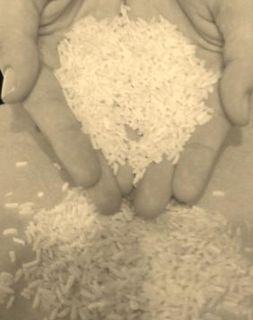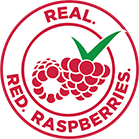The Agricultural Marketing Service (AMS) is an agency of the United States Department of Agriculture; it maintains programs in five commodity areas: cotton and tobacco; dairy; fruit and vegetable; livestock and seed; and poultry. These programs provide testing, standardization, grading and market news services for those commodities, and oversee marketing agreements and orders, administer research and promotion programs, and purchase commodities for federal food programs. The AMS enforces certain federal laws such as the Perishable Agricultural Commodities Act and the Federal Seed Act. The AMS budget is $1.2 billion. It is headquartered in the Jamie L. Whitten Building in Washington, D.C.
In the United States, a commodity checkoff program collects funds through a checkoff mechanism, sometimes called checkoff dollars, from producers of a particular agricultural commodity and uses these funds to promote and do research on that particular commodity. The organizations must promote their commodity in a generic way, without reference to a particular producer. Checkoff programs attempt to improve the market position of the covered commodity by expanding markets, increasing demand, and developing new uses and markets. Checkoff programs amount to $750 million per year.

Food policy is the area of public policy concerning how food is produced, processed, distributed, purchased, or provided. Food policies are designed to influence the operation of the food and agriculture system balanced with ensuring human health needs. This often includes decision-making around production and processing techniques, marketing, availability, utilization, and consumption of food, in the interest of meeting or furthering social objectives. Food policy can be promulgated on any level, from local to global, and by a government agency, business, or organization. Food policymakers engage in activities such as regulation of food-related industries, establishing eligibility standards for food assistance programs for the poor, ensuring safety of the food supply, food labeling, and even the qualifications of a product to be considered organic.
The California Walnut Board or Walnut Marketing Board, founded in 1933, supports the California walnut industry. The organization was originally known as the Walnut Control Board, changing its name to the Walnut Marketing Board in 1962 and to the California Walnut Board in 2008. Its formation was authorized by the Agricultural Adjustment Act (AAA).

Richard Frank Cebull is a former United States District Judge of the United States District Court for the District of Montana.
The National Pork Board is a program sponsored by the United States Department of Agriculture Agricultural Marketing Service whose purpose is to provide consumer information, perform industry-related research, and promote pork as a food product. The board's activities are funded by a mandatory commodity checkoff program, which requires hog producers to pay a small percentage-based fee each time an animal is sold.
The Dairy Promotion Program or National Dairy Checkoff is a US commodity checkoff program for dairy product promotion, research, and nutrition education as part of a comprehensive strategy to increase human consumption of milk and dairy products and to reduce dairy surpluses.
The U.S. Sugar program is the federal commodity support program that maintains a minimum price for sugar, authorized by the 2002 farm bill to cover the 2002-2007 crops of sugar beets and sugarcane.
The Sheep Promotion, Research, and Information Act of 1994 enabled domestic sheep producers and feeders and importers of sheep and sheep products to develop, finance, and carry out a nationally coordinated program for sheep and sheep product promotion, research, and information. The program is funded as a commodity checkoff program.
Marketing orders and agreements in United States agricultural policy allow producers to promote orderly marketing through collectively influencing the supply, demand, or price of a particular commodity. Research and promotion can be financed with pooled funds.
The Fluid Milk Promotion Act of 1990 the designation given to Subtitle H of Title XIX of the Food, Agriculture, Conservation, and Trade Act of 1990. Subtitle H authorized the establishment of a national fluid milk processor promotion program, or commodity checkoff program for fluid milk promotion. The program is funded through a 20¢/cwt. assessment on all milk processed for fluid consumption.
The American Egg Board (AEB) is a United States checkoff marketing organization, which focuses on marketing and promotion of eggs for human consumption. The AEB is best known for its long-running slogan, "The Incredible, Edible Egg", and the Just Mayo scandal.
The United Soybean Board (USB), is the governing body that instantiates the U.S. commodity checkoff program for soybeans It is made up of 73 volunteer farmer-directors who oversee the investments of the soybean checkoff on behalf of all U.S. soybean farmers. The soybean checkoff is a congressionally-mandated assessment on soybeans, whose proceeds are used to fund soybean research and promotion efforts. The checkoff is managed by the United Soybean Board under the supervision of the United States Department of Agriculture Agricultural Marketing Service. In 2014, the checkoff was $109.1 million.
The Southern United States Trade Association (SUSTA) is one of four non-profit State Regional Trade Groups (SRTG) that help small U.S. companies build global businesses. This is achieved through various programs designed to educate companies on exporting fundamentals as well as assist them in identifying prospective distributors and additional business opportunities overseas.
The Christmas Tree Promotion, Research, and Information Order is a provision of the 2014 U.S. Farm Bill that established a U.S. Department of Agriculture commodity checkoff program for cultivated Christmas trees. The program is funded through a $.15 per tree fee paid by growers. The program creates a marketing program similar to other checkoff programs such as "Got Milk?" or "Beef. It's What's For Dinner". The order was briefly implemented by the U.S. Department of Agriculture's Agricultural Marketing Service in November 2011. After a wave of political criticism the rule that established the program was officially stayed before being passed into law over two years later.

The Mushroom Council is a U.S. organization of fresh mushroom producers created and funded through a commodity checkoff program.
The Christmas Tree Promotion Board is a U.S. organization established by federal law through a commodity checkoff program. The board was created when the Christmas Tree Promotion, Research, and Information Order was signed into law as part of the 2014 U.S. Farm Bill.

The Paper and Packaging Board (P+PB), a commodity checkoff program overseen by the United States Department of Agriculture (USDA), is self-funded through quarterly assessments paid by eligible manufacturers and importers of paper and paper-based packaging. P+PB oversees the work of the Paper & Packaging – How Life Unfolds campaign designed to increase demand for paper and paper-based packaging.
Johanns v. Livestock Marketing Association, 544 U.S. 550 (2005), is a First Amendment case of the Supreme Court of the United States. At issue was whether a beef producer could be compelled to contribute to beef industry advertising.

Ranchers-Cattlemen Action Legal Fund v. Sonny Perdue is a case in which plaintiffs allege that checkoff dollars are being used to support Canadian and Mexican beef. Checkoffs are mandatory contributions, from beef producers in this case, which are used for generic industry advertising and research.




